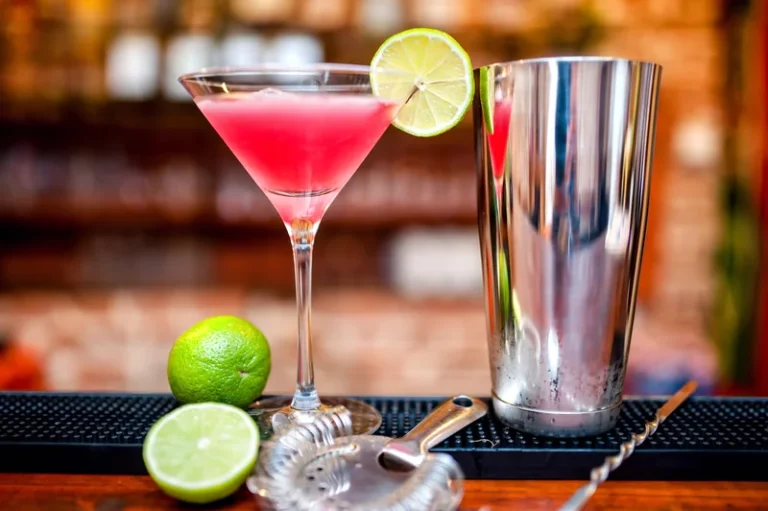
A healthy amount of serotonin means our reactions to perceived threats will likely be logical – like our does alcohol cause anger issues tension when a car cuts us off on the freeway. When there isn’t enough serotonin, the limbic system begins to perceive threats where there may not be any. And because alcohol directly impacts serotonin levels, excess drinking means our limbic response isn’t reliable. This is one reason why people are quick to anger when they’re drinking – they are perceiving more threats than they would with no alcohol in their system. Alcohol and anger work in the same way as sleep deprivation, stress, and even some drugs in how it can make people more emotional. For some people, this may mean they are happier and act silly when drinking while others get angry more easily.
The Link Between Alcohol and Aggression
- However, it’s essential to recognize that not all individuals who consume alcohol will exhibit aggressive behavior.
- When people drink alcohol, their behavior can change, leading to anger in some cases.
- When they come out, others notice them because they’re not a part of the everyday social experience.
- Many of us started drinking because we didn’t know how to deal with our feelings.
Poor judgement and lack of self-control can lead to making irrational decisions, which can make a person even angrier with everything. Even if they don’t engage in any bad behaviour, poor sleep or a hangover may mean that the person won’t be functional the next day, which will put anyone in a bad mood. A person is less likely to hold themselves back (in emotions or behaviour) under the influence. If normally you might suppress your emotions in a situation, alcohol can make you more dramatic. This makes you more likely to binge on junk food, call ex-lovers on https://ecosoberhouse.com/ the phone late at night, drive while drunk and also to act verballyor physically aggressive to people who irritate or anger you.
- We help addicts every day by customizing treatment plans around the needs of our patients.
- Try to remain calm and collected, and don’t use grudges as leverage.
- Additionally, more than three-quarters of study participants with the gene had mood disorders, personality disorders, and mood swings (10).
- Often, it takes months (or even years) before someone finds themselves physiologically and psychologically dependent on alcohol.
Get Treatment
- Despite what you may have heard, anger is not an unhealthy emotion.
- A slight annoyance may turn into an infuriating problem, thanks to alcohol.
- However, these drugs have pros and cons, so these should only be used after consulting a professional.
- We can help answer your questions and guide you to take the best step forward.
If you find yourself in a situation with someone who is angry while intoxicated, the first step is to assess your level of risk. There’s a difference in safety between someone who is expressing anger verbally and one who has become physically aggressive. Extreme emotions that are usually hidden from others, like anger and sadness, may be more noticeable when you drink because you’re less able to conceal and manage them.
Why Do People Get Angry When Drunk: Understanding Alcohol-Induced Aggression
This communication disruption can wreak havoc on your frontal lobe’s decision-making, judgment, and executive control. If taking time out doesn’t help, find a way to put your anger to good use. Exercises, such as running or kickboxing, can be a good way to burn off any rage. Emotional instability should not be ignored as it can lead to many problems in life, and often pushes one towards alcohol and substance misuse. However, if a person is already dependent on alcohol, they will need to address that first. Having a short temper also means it is easier to ruin relationships by getting angry over petty things or taking out your stress on a loved one.

When you are drunk, most things will cloud you, and you will not be able to perceive situations correctly. Drug rehabilitation The terms “anger” and “aggression” are usually used interchangeably; however, there is a difference between Anger and aggression. Anger is an emotion experienced when you feel threatened and frustrated, while aggression is a behavior in which you can harm yourself, your family, and others.

- Decreased cognitive function due to alcohol also means that a person can’t think straight.
- Anger, a normal emotion, can be manifested in various behaviors ranging from mild irritation to explosive outbursts.
- As of 2015 in the United States, about 17 million adults (7%) and 0.7 million (2.8%) of those from 12 to 17 years of age are affected.
- Most of these treatments come from the framework of cognitive behavioral therapy (CBT).
- The tendency to avoid looking ahead and assessing consequences for one’s actions is a risk factor for aggressive behavior while drinking.
- They were more likely than those without the variation to have a history of outbursts and fights while drinking, as well as to have been arrested for driving under the influence.
While it may seem like anger is the most common emotion caused by alcohol, it may not be that straightforward. Groups like Al-Anon or Al-Teen are available to help support people who have been affected by a loved one’s alcoholism. If you are close to someone who experiences alcohol-induced anger, it’s important to get help and support. Additionally, there is evidence that chemical and biological factors play a role. People with higher levels of testosterone are more likely to be aggressive. It is important to note that alcohol-related aggression and/or violence do not occur in the majority of all chronic alcohol consumers or all alcohol-dependent individuals.
What is the link between anger and alcohol?

Unfortunately, this is common for many struggling with substance abuse and mental health issues. Alcohol can make people do things they wouldn’t normally do, like become angry or aggressive. Between 50-86% of aggressive and violent episodes involve alcohol, according to a study published in the Psychology of Addictive Behaviors. Long-term alcohol misuse can also cause serious and possibly permanent brain changes, which increase emotional instability and amplify certain psychological disorders. People with anger management issues already lack control over themselves. Thus, someone with a long-term alcohol addiction may become easily irritable over time.

For example, if a person goes into a drinking experience with the expectation of alcohol helping them pick a fight with a partner later, that’s then likely to happen. Drinking, or even the anticipation of consuming alcohol, causes the production of dopamine. Additionally, the amygdala area of the human brain is where we process emotions. And our orbitofrontal cortex (OFC), which is part of the PFC, helps calm feelings of rage and aggression. The PFC region of the brain is where we make judgment calls about potential behavior before acting on it.